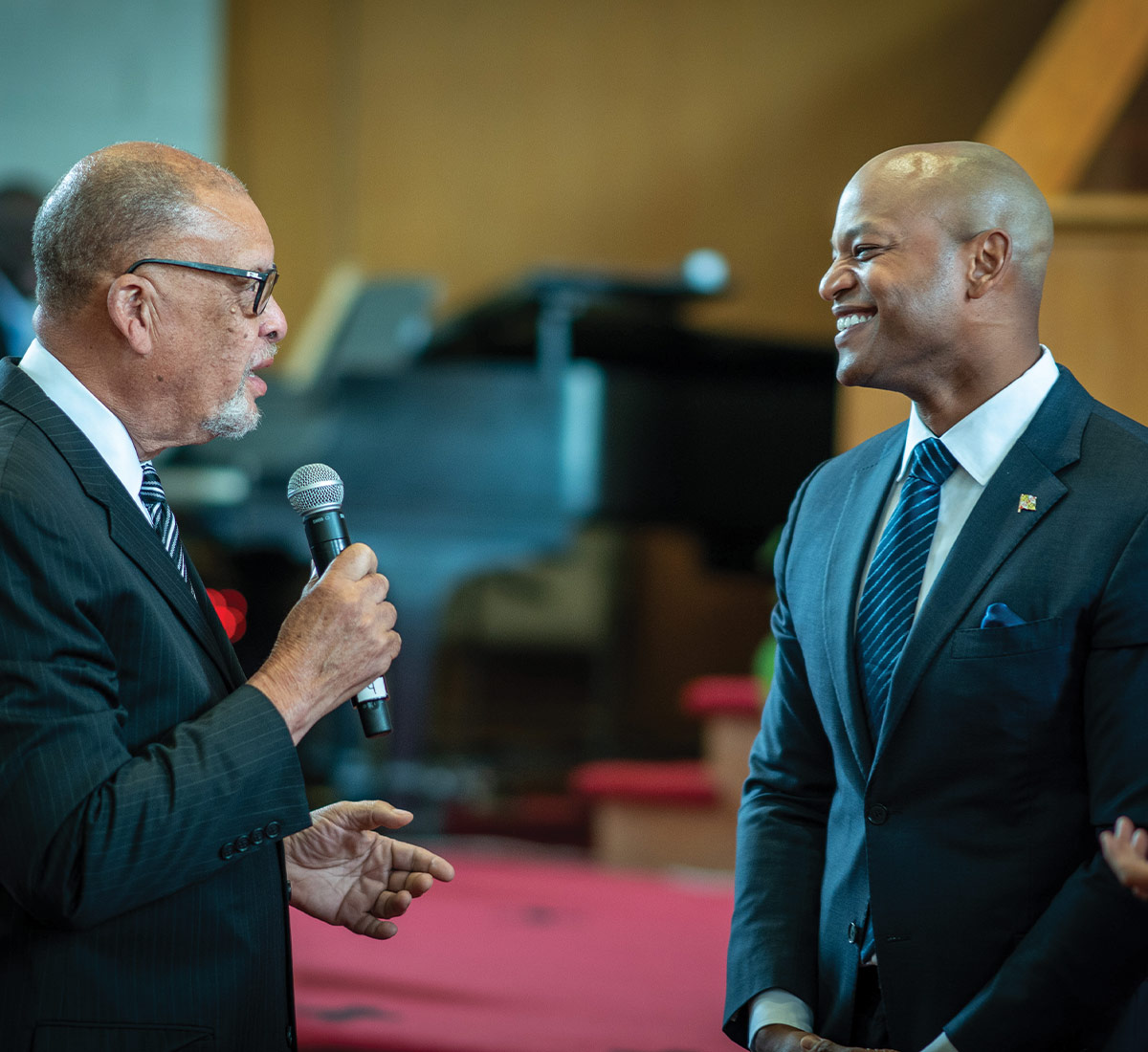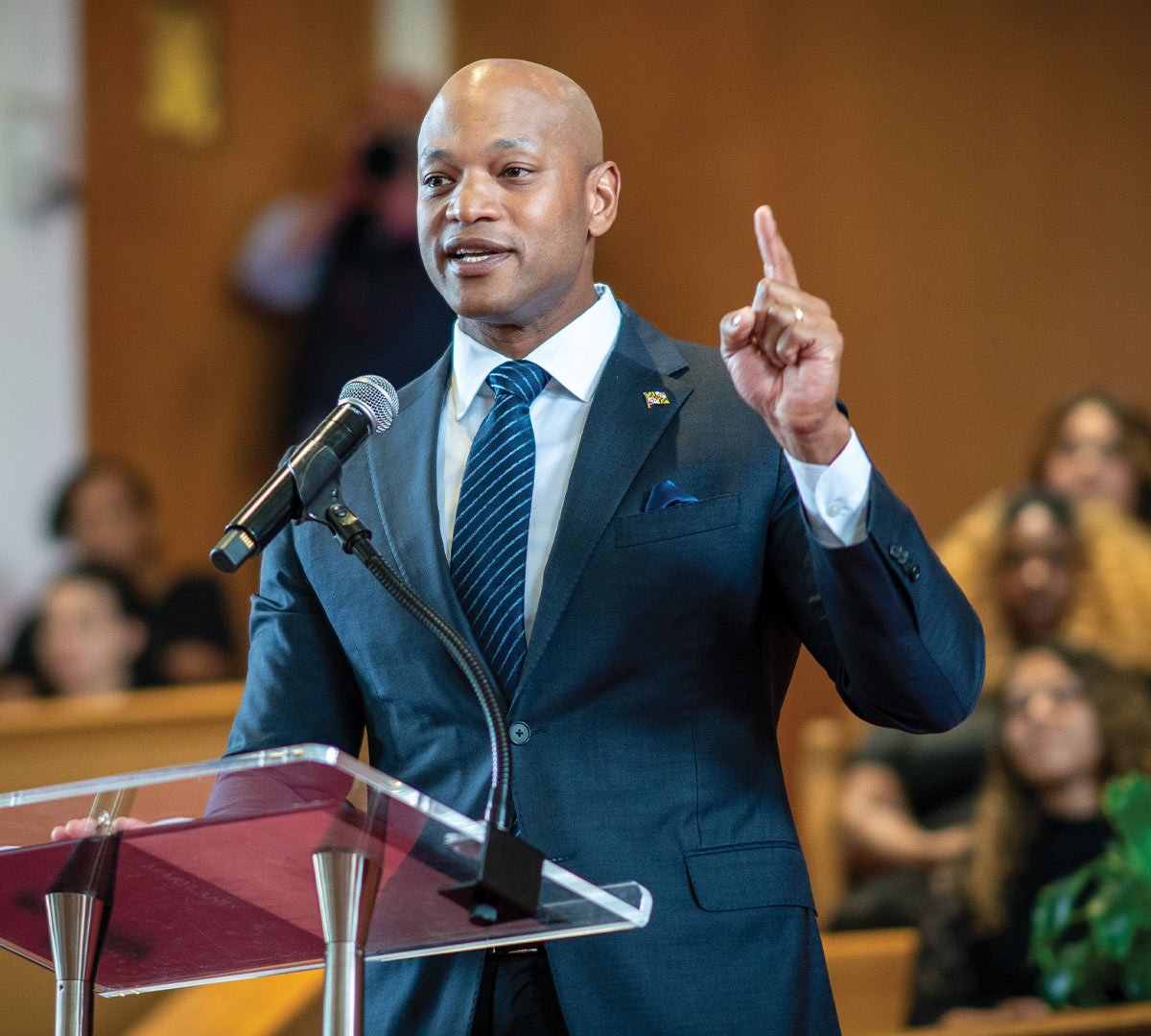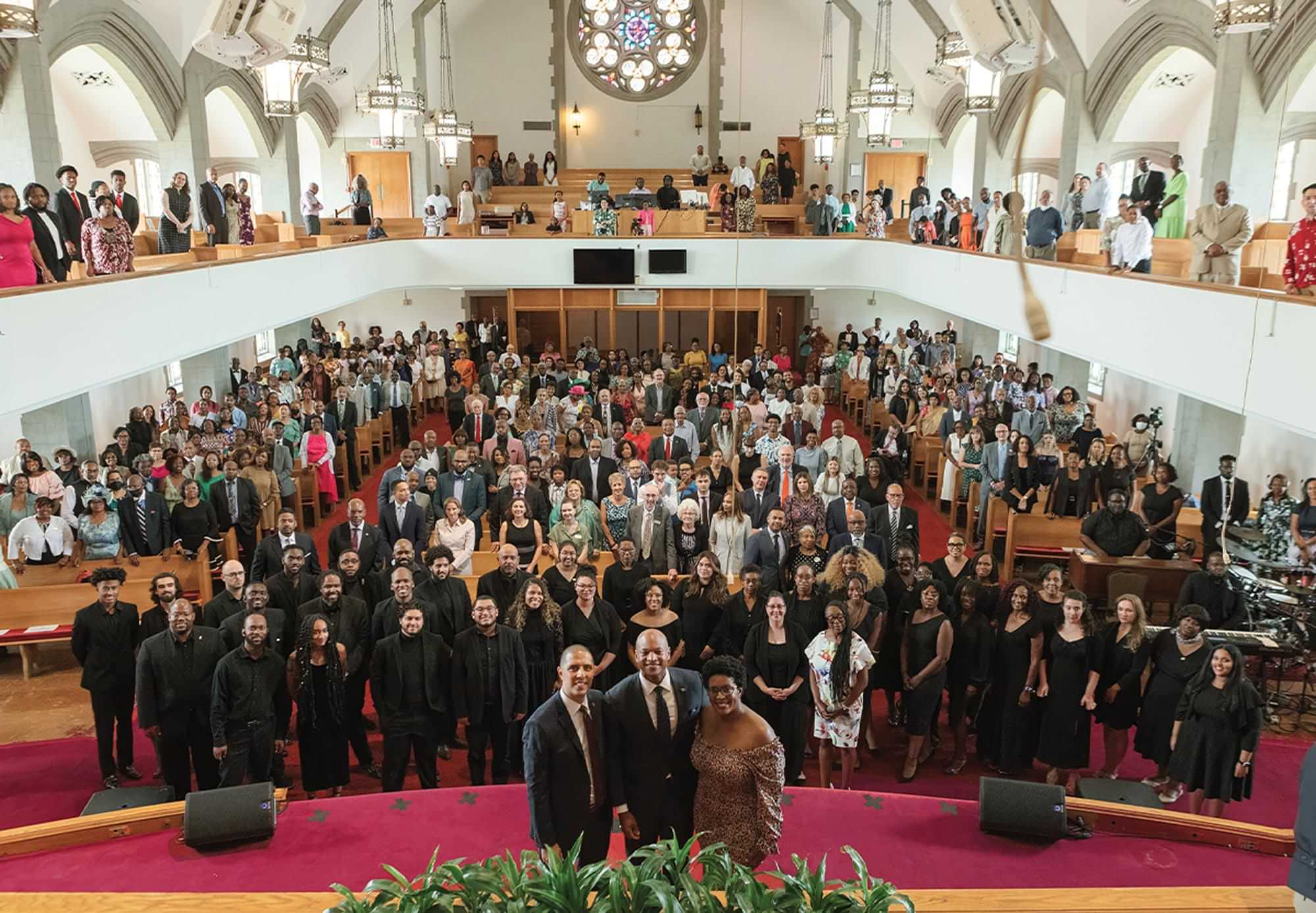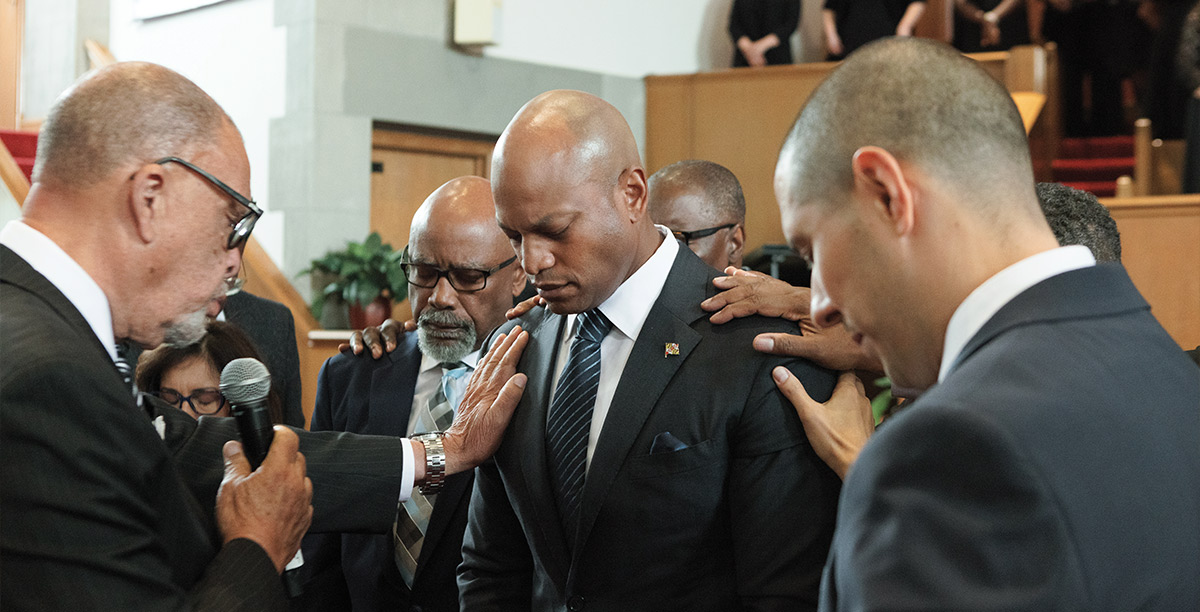
An Interview with
Maryland Governor Wes Moore.

Photo by Joe Andrucyk. Gov. Wes Morgan with his daughter, Mia, son, James and the first dog, Tucker.
hen Maryland Governor Wes Moore set up a visit with the congregation of the Takoma Park SDA Church in Takoma Park Maryland, the meet up sealed a debt of gratitude. The 63rd Maryland Governor, and first black Governor, reaches back to the moments that his family and this church family sojourned together in a season of loss and pain.

hen Maryland Governor Wes Moore set up a visit with the congregation of the Takoma Park SDA Church in Takoma Park Maryland, the meet up sealed a debt of gratitude. The 63rd Maryland Governor, and first black Governor, reaches back to the moments that his family and this church family sojourned together in a season of loss and pain.
Photo by Joe Andrucyk. Gov. Wes Morgan with his daughter, Mia, son, James and the first dog, Tucker.

Photos by Art Brondo
MOORE: I remember the hole that my father’s sudden passing left in our family–one that my mom worked around the clock to try and fill. But I also remember the love we received from our community, including the church. Our entire family could lean on the support of the village. When I think about why I made the choice to serve, I’m brought back to that early tragedy in my life, when people came to our rescue without being asked, and delivered the help we needed. I’m proud to have served in the Army; I’m proud to have led one of the nation’s largest poverty fighting organizations; and I’m proud to have been elected the 63rd governor of Maryland. Those choices are emanations of the fact that I learned early on that acts of service can be the difference between overcoming tragedy and being consumed by it.


I believe that as the children of God, we have a responsibility to build a better state and a better world in any way we can. Because, while we ask God for his blessing and his help, we also know that it is us who must carry out his will. Service is the thing that will save us. It doesn’t matter how you serve; what matters is you make the choice to serve.
MESSAGE: On a national level, the government’s crisis response—emergency assistance, valuations, etc. at every stage—is racially disparate. It is well documented that after a crisis or disaster, there is less money for communities, families, individuals of color than similarly situated white counterparts. What can be done to better help people of color in times of crisis?


MOORE: This first-in-the-nation service year option will change Maryland forever and will be a model for the entire country on how to create a state that serves. By partnering with local employers, Maryland will be able to provide world-class opportunities for professional development, continued learning, and community building that will result in a more cohesive and economically competitive Maryland.
I’m living proof of the power of service – the trajectory of my life was changed forever because of it. My journey to the Governor’s Office was paved by individuals who believed in me, supported me, and pushed me to see beyond what was directly in front of me. That is the story that I want all of our young people to have, and that is why this program is so important to me.
These Marylanders will have the opportunity to serve their communities, learn critical skills, and expand their horizons — all while earning $15 an hour and a $6,000 completion award to use as a stipend or for future tuition costs. This is an opportunity I want everyone to have, should they want it.